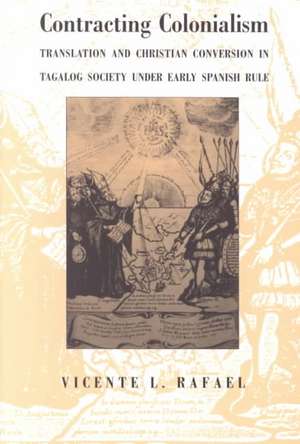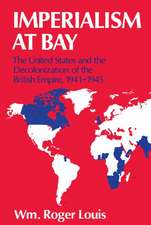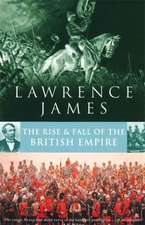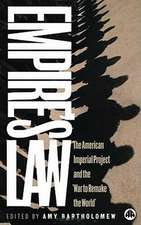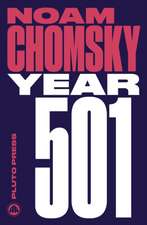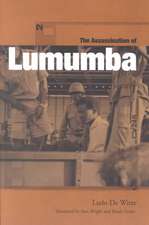Contracting Colonialism – Translation and Christian Conversion in Tagalog Society Under Early Spanish Rule
Autor Vicente L. Rafaelen Limba Engleză Paperback – 24 noi 1992
Preț: 263.47 lei
Nou
Puncte Express: 395
Preț estimativ în valută:
50.41€ • 52.64$ • 41.72£
50.41€ • 52.64$ • 41.72£
Carte tipărită la comandă
Livrare economică 05-19 aprilie
Preluare comenzi: 021 569.72.76
Specificații
ISBN-13: 9780822313410
ISBN-10: 0822313413
Pagini: 256
Dimensiuni: 157 x 228 x 20 mm
Greutate: 0.44 kg
Ediția:Pbk.
Editura: MD – Duke University Press
ISBN-10: 0822313413
Pagini: 256
Dimensiuni: 157 x 228 x 20 mm
Greutate: 0.44 kg
Ediția:Pbk.
Editura: MD – Duke University Press
Recenzii
ÒAn innovative and fascinating interpretation of the early Spanish period. . . . His focus on translation and conversion makes his book of great value not only to Philippine historians but also to scholars interested in the role of language in history. This study is a work that deserves to be read and reread carefully.Ó --Bruce L. Fenner, American Historical Review
oAn innovative and fascinating interpretation of the early Spanish period... His focus on translation and conversion makes his book of great value not only to Philippine historians but also to scholars interested in the role of language in history. This study is a work that deserves to be read and reread carefully.O --Bruce L. Fenner, American Historical Review
oAn innovative and fascinating interpretation of the early Spanish period... His focus on translation and conversion makes his book of great value not only to Philippine historians but also to scholars interested in the role of language in history. This study is a work that deserves to be read and reread carefully.O --Bruce L. Fenner, American Historical Review
Notă biografică
Textul de pe ultima copertă
"This is a significant, original, and engaging book that should find an audience among those concerned with colonialism, discourse, and ideology."--Renato Rosaldo, Stanford University
